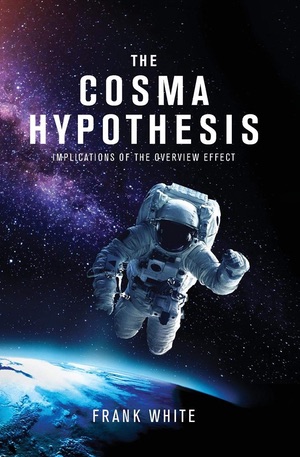Review: The Cosma Hypothesisby Jeff Foust
|
| If there’s one thing that The Cosma Hypothesis does illustrate, it is that human spaceflight is, ultimately, a human endeavor, with rationales that go beyond science and politics and economics. |
All of that sounds a little, well, New Age. It is, though, only part of the book. The second part of the book revisits and updates a concept he proposed back in the first edition of The Overview Effect for a “Human Space Program.” That program, he describes, is intended to “support humanity’s understanding and achievement of its purpose as an active partner in universal evolution.”
While the first part of the book is very philosophical, the second part is, by contrast, more bureaucratic. White outlines his revised Human Space Program concept, which involves creating 16 task forces to cover engineering, science, policy, economics, and even ethics and religion issues. The work of these tasks forces would all lead to the creation of a “Blueprint for Exploring and Developing the Solar System,” which he believes would be the most comprehensive plan for doing so, and one open to any government, company, or other organization.
It’s unclear what will happen with this Human Space Program effort (this new one supersedes an “Academy in Space Initiative” that White helped to start in 2016 at Framingham State University outside Boston.) Even if the project comes up with that integrated blueprint document, there’s nothing to suggest it would be anything more than the multitude of other reports developed over the years for human space exploration, other than philosophical underpinnings of this document link back to the Overview Effect.
If there’s one thing that The Cosma Hypothesis does illustrate, it is that human spaceflight is, ultimately, a human endeavor, with rationales that go beyond science and politics and economics. Perhaps, in the end, it will be the effect of seeing the Earth, and the universe, from the novel vantage point of space that will provide the motivation for humans to visit, explore, and ultimately live in space.
Note: we are temporarily moderating all comments subcommitted to deal with a surge in spam.
